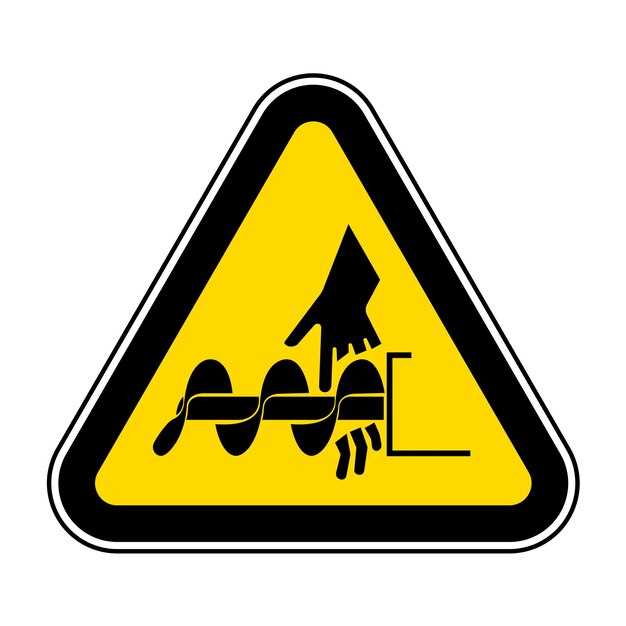Set a one-hour cap and a weekly quota: one hour per meetup, max three meetups – this reduces decision fatigue and preserves time for job-search work. Arrive with three concrete conversation anchors (current projects, a recent article you disagree with, one hobby) and a single exit line prepared in advance; practice the exit once so you can leave calmly without awkwardness.
When asked about your employment status use a 15–30 second script: “I left my last company to refocus on skills; I havent been idle – I taught myself Python, consulted two nonprofits, and am vetting new roles.” Provide an источник (portfolio link or project repo) and a short measurable result (e.g., “reduced volunteer org’s onboarding time by 20%”). This concrete framing helps other people know where you are and what to ask next, and it lets you turn vague curiosity into a clear choice about whether to continue the conversation.
Expect emotional spikes: mans and husbands I coach sometimes relive old patterns and even idealize prior titles. Count those impulses and label the feeling out loud for yourself (“that’s nostalgia, not current reality”) so they lose power. Undoubtedly, learning to separate status from worth speeds up the shift: think in terms of skills you can become known for rather than roles you once held.
Practical logistics matter: pick public places where background noise is low, count messages before a call (three text exchanges or one short voice note), and decide payment approach ahead of time – both paying and splitting are acceptable choices; state yours briefly. Teach themselves these small routines: prepare a one-line opener about current focus, a one-minute answer about gaps, and one question that steers the conversation toward shared interests.
Measure progress weekly: track how many meetups you had, where they happened, what you learned, and whether interactions left you energized or depleted. If everything trends toward depletion, reduce frequency and change format (group activity or skill workshop). These concrete adjustments keep social life moving without derailing the work transition.
How to Explain Your Job Gap on a First Date
Lead with a 20–30 second, three-part script: clear reason for the gap, measurable actions you took, and the concrete next step on your path.
- One-line opener (20–30s): “I left my last business six months ago to fix financial problems, rebuild skills (two certificates, 40 hours of coursework), and focus on a clear path back into a role with purpose.”
- Concrete examples to mention:
- Certifications: list names and hours (e.g., Project Mgmt – 35 hours).
- Output: number of applications sent, interviews attended, networking messages: e.g., 60 outreach emails, 8 informational meetings.
- Income plan: part-time consulting or freelance gigs that cover X months of living expenses (state X as a number).
- Short follow-up line: “Next I’m targeting two specific roles in X business area; I’m interviewing with three companies this month.”
- Dos:
- Mention integrity: if the gap was triggered by a wrong hire, restructuring, or leaves of absence, say that plainly without over-sharing.
- Frame change as skill-building: cite exact skills improved and how they match the role you want.
- Be social-proof ready: name a mentor, recruiter, or meeting that confirms your direction.
- Keep purpose visible: say what you want next and one measurable milestone (offer, contract, or interview count).
- Don’ts:
- Don’t bury problems under vague language or surface-level excuses; specifics build trust.
- Avoid oversharing financial details beyond a sentence about stability; dating is not a financial audit.
- Don’t claim you did nothing – silence creates assumptions; once you explain, most concerns vanish.
- Don’t turn the meeting into a job pitch; keep personal and professional balance.
Concrete script examples here’s one to adapt: “I took nine months off after my last role because the company changed direction and left my team without a product to sell. During that time I finished two courses (60 hours total), freelanced for three small clients, and met with recruiters weekly. My purpose now is to join a product team where these skills make an immediate impact.” Use this structure without improvising long monologues – short, honest, and skill-focused.
Address common social signals: if your companion seems curious about motive, offer one honest sentence about feelings (maybe relieved, maybe frustrated), then pivot back to facts and next steps. This keeps the conversation human, not defensive, and aligns integrity with practical understanding of your path and the wider world.
If surface impressions still raise doubts, close with a concrete offer: mention a public profile, portfolio link, or an upcoming interview date so they can verify independently. That kind of transparency clears uncertainty and shows you speak from the soul rather than from rehearsed lines.
Short, honest phrases to use in casual conversation

Lead with one short sentence framing your status and next steps.
“I’m jobless right now, focused on projects that pay higher”; “I’ve worked in business before and enjoy client-facing roles”; “This works for me: focus on contract roles only”; “Some give themselves a sabbatical to test a new lifestyle”; “I’ve ever taken short contracts to keep momentum”; “I prefer not to burden others; I’m looking on my own”; “They worked late months, then shifted priorities to family”; “Without a steady paycheck, they track expenses and cut long subscriptions”; “I’m on less media, spending time on skill refresh”; “I wonder about freelance places and become open-minded about structure”; “Some wives choose stability over higher pay”; “I’ve thought about consulting as a bridge to something higher”; “I wonder if youll meet partners who respect that story”.
Turn job-search activities into engaging stories
Lead with a 60–90 second concrete anecdote: name the situation, the obstacle, the exact action you took and the measurable result so the listener understands what your time produced and how it’s based on real work.
Concrete examples: “I set up eight informational lunches over six weeks, mapped the skill gaps product teams wanted, and built a one‑page prototype that two hiring managers at one company reviewed.” Use numbers (8 lunches, 6 weeks, 1 prototype, 2 companies) so the scene feels long enough to matter but short enough to be conversational; if possible, mention a dollar or time savings to make impact clear.
Share compact scripts you can use in casual conversation: heres a 30‑second opener – “I havent been idle: I audited three online courses, launched a small freelance project that cut a process time by 30%, and that saved a nonprofit about $5k in cash this quarter.” That phrasing shows youre financially pragmatic, not chasing titles, and it avoids begging for sympathy.
Address finance questions directly: say you are financially stable or financially planning, explain freelance gigs or contract labor that keep cash flow steady, and note any gradual plan to change roles. Maybe your mother or friends worry; you can say you understand that concern and that youre taking steps to remain independent and build a reliable runway.
Frame motivations without labels: “I wanted to learn product strategy during this pause; thats why I reached out to their teams and did real work.” Avoid implying your worth depends on a company title – mean instead that you wanted skill growth. Dont force long confessions; keep the focus on skills, outcomes and what you wish to do next.
Practice aloud, record a short clip on your phone, and post a private test video to youtube or share with a trusted peer for feedback. Gradually refine language until saying it feels natural in your head and doesnt trigger worry. Undoubtedly rehearsal reduces awkwardness; when youre ready, deliver the anecdote, pause for reaction, then expand only if they ask for more time or details.
Use this resource for structuring narratives: https://hbr.org/.
Answering follow-up questions about income without oversharing
Open with a single factual line: “I’m currently bringing in $2,500/month from freelance consulting and $300/month from a small YouTube channel; savings cover rent and groceries for four months and I’m interviewing with two companies, so paid work should ramp up in 4–8 weeks.”
Use short scripts to control the conversation: if asked for more, say “That’s the snapshot I’m comfortable sharing–I’d prefer to keep details about savings private.” If pressured, add “I can pass on that now; happy to talk about my work and plans instead.” Those lines let you stop intrusive follow-ups without sounding defensive.
When someone tries to throw judgment about joblessness or breadwinner roles, respond with boundary language: “I’m addressing joblessness proactively; I’m self-made in my business efforts and gradually rebuilding income.” Avoid debating masculinity or expectations tied to being a bachelor–switch topics to measurable progress like client invoices, recent gigs, or a small recurring YouTube revenue number (e.g., $300/month) that shows substance.
Offer verifiable specifics, not drama: name one client type, amount paid last month, and one recurring cost you cover (groceries $250/month). Example: “Last month I was paid $2,800 total; that covers living costs and leaves a little for savings.” Concrete facts reduce prying and protect your integrity.
Handle emotional pressure directly: “I understand your feelings; once I have a full offer I’ll share timelines.” If someone insists on probing, say “I don’t pass on personal finance details early; let’s talk about values and expectations instead.” That protects privacy, keeps the conversation about both people, and prevents small problems from becoming bigger ones.
Decide whether to mention unemployment before meeting
Disclose unemployment before meeting only when it directly affects logistics – transport, payment or where youll meet; otherwise wait until after meeting. If splitting a bill is impossible or you need cash for groceries, tell the person whom you plan to meet so they can adjust plans rather than show up and walk back out. If the invite includes going to a flat or staying late, mention it up front; at times small details change expectations and prevent last-minute worry.
Phrase that disclosure briefly and without guilt: state your purpose, how you cover basic needs, and that this phase does not define your soul or make you any less dateable. Although some mans lives became unstable, avoid long apologies – give a concrete idea of next steps so the other person sees action, not drama; this shifts thinking from pity to confidence and prevents unnecessary guilt.
If you wish, keep the disclosure short: if someone seeks to relive past mistakes or imagines you automatically becoming their boyfriend, thats their problem – stay concise and practical. Show evidence: mention short courses on youtube, side gigs that bring in cash, or volunteer work; that tells their mind you are rebuilding with purpose and keeps you dateable to open-minded people. The main thing is to control what’s relevant and avoid unloading every shameful detail.
Budget-Friendly Dating While Looking for Work
Set a weekly entertainment cap of $30–$60 and schedule two low-cost meetups (coffee, lunches, park walks) so living costs stay covered and youre free to meet people without overspending.
Tell a new person early that you are looking for full-time work; honesty signals integrity, reduces awkward expectations, and makes it easy for them to accept a low-cost plan–thats encouraging for both sides anyway.
If masculinity or being a prospective boyfriend pressures you to throw money at outings, counter that by suggesting shared activities that cost nothing or little; gradually turn group hikes, library talks, or potluck dinners into consistent connection points so youre comfortable and not judged on cash alone.
| Idea | Typical cost | Duration | Why it works |
|---|---|---|---|
| Park walk & coffee | $3–$10 | 45–75 min | Low pressure, conversation-focused |
| Weekday museum/free-entry night | $0–$12 | 60–90 min | Culture without high price |
| Home-cooked dinner or cooking together | $10–$25 | 90–120 min | Intimate, shows effort not expense |
| Lunches instead of dinners | $8–$15 | 45–60분 | Cheaper, fits job-search schedule |
| Volunteer shift together | $0 | 60–180 min | Shared values, natural conversation |
Budget rule: take your monthly discretionary amount (income minus essentials), multiply by 0.05–0.10 to set a sustainable dating allowance; for example, if discretionary is $600, limit social spending to $30–$60 monthly and allocate by week. If youre worried about perception, ask the other person what they find comfortable and accept matched contributions.
Practical mindset: convert nervous spending into value–use free community events, swap paid outings for creative alternatives, and keep a short list of low-cost venues. You may wonder if generosity is taught only through purchases; wilde reminded that small thoughtful gestures often matter much more, so do what feels authentic to your person and whats possible in your current situation.


 구직 중에도 자신감 있게 데이트하는 방법 — 실용적인 팁">
구직 중에도 자신감 있게 데이트하는 방법 — 실용적인 팁">

 Abstracted Collective – 현대 미술, 디자인 & 커뮤니티">
Abstracted Collective – 현대 미술, 디자인 & 커뮤니티">
 금사빠의 징후 - 알아보고 피할 수 있는 12가지 경고 신호">
금사빠의 징후 - 알아보고 피할 수 있는 12가지 경고 신호">
 Why Marriage Doesn’t Have to Be the End Goal of Every Relationship">
Why Marriage Doesn’t Have to Be the End Goal of Every Relationship">
 에이블 키오 — 전기, 주요 경력 및 핵심 업적">
에이블 키오 — 전기, 주요 경력 및 핵심 업적">
 데이트 조언 162 – 외지 데이트 딜레마 — 팁 & 솔루션">
데이트 조언 162 – 외지 데이트 딜레마 — 팁 & 솔루션">
 전 연인을 되찾고 실제로 유지하는 방법 - 7가지 확실한 단계">
전 연인을 되찾고 실제로 유지하는 방법 - 7가지 확실한 단계">
 4 Controversial Reasons You’re Still Not Married (What People Won’t Tell You)">
4 Controversial Reasons You’re Still Not Married (What People Won’t Tell You)">
 잘못된 사람들과 데이트하며 시간을 낭비하는 것을 멈추는 방법 – 10가지 입증된 팁">
잘못된 사람들과 데이트하며 시간을 낭비하는 것을 멈추는 방법 – 10가지 입증된 팁">
 How to Tell a New Boyfriend About Your Recent Divorce — Without Scaring Him">
How to Tell a New Boyfriend About Your Recent Divorce — Without Scaring Him">
 진심으로 사과하는 5가지 방법 – 진정한 사과를 전달하는 방법">
진심으로 사과하는 5가지 방법 – 진정한 사과를 전달하는 방법">